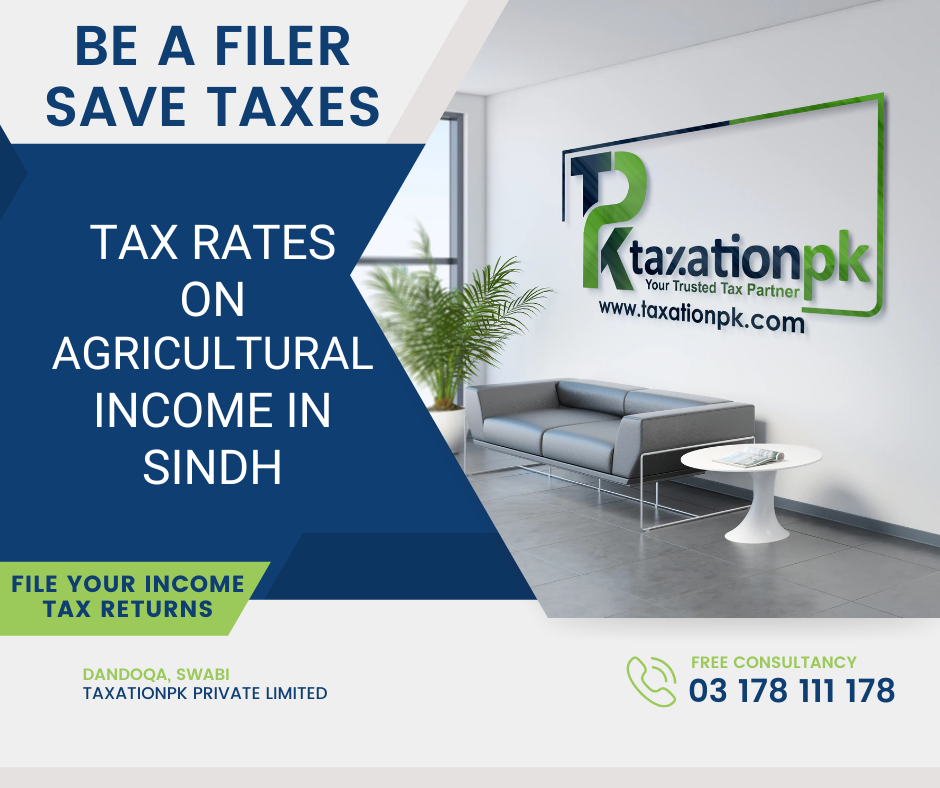In Pakistan, agricultural income tax is levied at the provincial level, not by the federal government. This means each province has its own set of tax rates and collection procedures. This article dives into the agricultural income tax structure for Sindh province.
Sindh’s Agricultural Income Tax Brackets
The Sindh Land Tax and Agricultural Income Tax Ordinance, 2000 (Amendment) Act, 2018, outlines the following tax brackets for agricultural income:
- Income not exceeding Rs. 1,200,000: Exempt from tax.
- Income exceeding Rs. 1,200,000 but not exceeding Rs. 2,400,000: 5% tax on the amount exceeding Rs. 1,200,000.
- Income exceeding Rs. 2,400,000 but not exceeding Rs. 4,800,000: A fixed tax of Rs. 60,000 plus 10% tax on the amount exceeding Rs. 2,400,000.
- Income exceeding Rs. 4,800,000: A fixed tax of Rs. 300,000 plus 15% tax on the amount exceeding Rs. 4,800,000.
Key Points:
- The tax is calculated on the total agricultural income earned by the landowner.
- The income threshold for tax exemption is relatively high compared to other income brackets.
- The tax rate becomes progressively higher as income increases.
Who Pays Agricultural Income Tax in Sindh?
The agricultural income tax is the responsibility of the owner of the land generating the income. This could be an individual farmer, a joint ownership arrangement, or an agricultural corporation.
It’s important to note that the specific tax filing requirements and procedures may vary. Landowners in Sindh should consult with a tax professional or the Sindh Revenue Board (SRB) for the latest regulations and guidance on filing their agricultural income tax returns.
Significance of Agricultural Income Tax
Agricultural income tax is a crucial source of revenue for the Sindh provincial government. The collected funds are used to finance various public services and infrastructure projects that benefit the agricultural sector and the broader community.
Understanding these tax rates allows farmers and landowners to make informed financial decisions and ensure compliance with provincial tax regulations.







